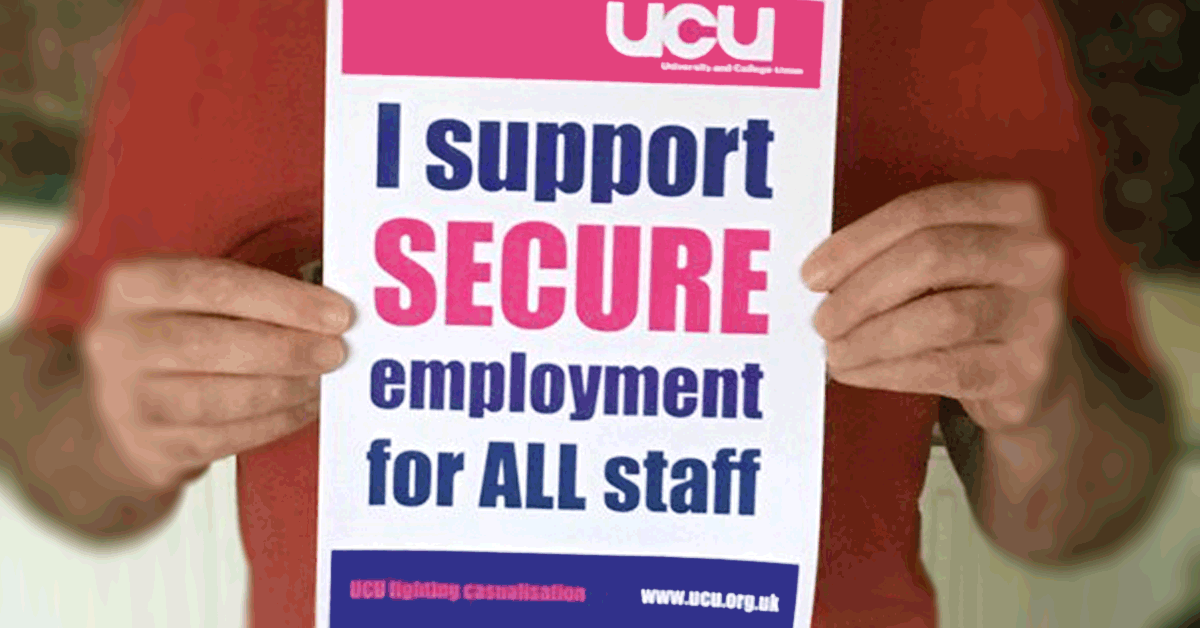Demand for secure employment at colleges and universities
19 November 2015
Thousands of staff members at colleges and universities across the UK are taking part in a day of action against zero-hours contracts and other forms of temporary contracts today.
UCU's anti-casualisation day of action aims to highlight how both further and higher education are overly reliant on casualised staff, and urge institutions to provide permanent, secure contracts to staff working in post-school education.
Almost half (46%) of universities and three-fifths (60%) of colleges use zero hours contracts to deliver teaching. Over two-thirds (68%) of research staff in higher education are on fixed term contracts, with many more dependent on short-term funding for continued employment.
Millions of students are taught by temporary teachers with little or no employment rights or job security. A
![]() UCU report [940kb] published earlier this year showed that many staff on temporary and casual contracts struggle to get a mortgage, pay household bills or even put food on the table.
UCU report [940kb] published earlier this year showed that many staff on temporary and casual contracts struggle to get a mortgage, pay household bills or even put food on the table.
The union further argues that secure contracts are also an important part of ensuring teaching excellence and good student experiences. Many casual staff don't have access to the same professional development opportunities and facilities which support high-quality teaching.
The day of action will see meetings, stalls and drop-in sessions at colleges and universities across the country. On social media, members will use the hashtag #AntiCas15 to show their support and outline how they are affected.
UCU general secretary, Sally Hunt, said: 'It's shocking to think that many staff working in colleges and universities are struggling to make ends meet; this day of action will shine a spotlight on the issue and help us make the case for change. Too often, people on casual contracts have few employment rights and no job security. If government truly wishes to improve the quality of education in our colleges and universities, it should start by ensuring that staff are well-supported and secure in their employment.'
- PrintPrint this page
- Share



Comments